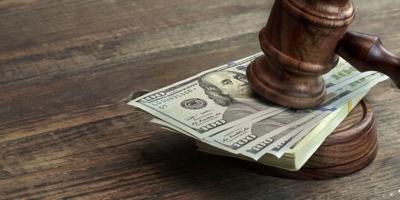
PHILADELPHIA - A massive verdict against Exxon in Philadelphia is giving business groups a chance to rail against a system in which juries have the power to lay nine-figure smackdowns on companies for damages like pain and suffering.
They're called non-economic damages, and in Paul Gill's lawsuit against Exxon and others they were worth more than $700 million - the largest verdict ever in a case alleging a company failed to warn benzene in gasoline could cause cancer.
A Philadelphia state court judge upheld the verdict and added $90 million in delay damages, and Exxon is now appealing to the state Superior Court. The verdict was one of several reasons why Pennsylvania jurors gave out the third-highest amount of money in the country last year.
"How a jury might arrive at such a large number is a mystery," wrote a coalition of groups urging the Superior Court to strike it. "Non-economic damages for pain and suffering, embarrassment and humiliation, and loss of life's pleasures are inherently subjective to each plaintiff.
"As a result, they are by their nature susceptible to arbitrary and unpredictable calculations."
Jurors in the case of Gill, who worked for five years at a gas station more than 40 years ago and now has leukemia, weren't even asked to decide actual economic damages. That didn't stop them from giving $725.5 million to Gill and his wife.
It's part of a "trend of eye-popping non-economic damages awards, the groups say. They are the U.S. Chamber of Commerce, the Pennsylvania Chamber of Business and Industry, the Pennsylvania Coalition for Civil Justice Reform, the American Property Casualty Insurance Association, the Insurance Federation of Pennsylvania, the Washington Legal Foundation, the National Federation of Independent Business and the Pennsylvania Manufacturers' Association.
"Although non-economic damages are described as a necessary part of 'mak[ing] the plaintiff whole,' the size of the award in this and other recent cases suggests the awards are exceeding that goal," they wrote June 23.
There are no guidelines for jurors when they decide these damages, allowing plaintiff lawyers to spin tales of corporate greed to them to raise their anger. Gill's lawyers at trial wrote on an easel that Exxon sells 12.5 billion gallons of gasoline each year and added $3 per gallon on it.
One juror tied the verdict to climate change and called Exxon a villain, boasting that the jury "rocked" its world. But these verdicts are a "tort tax on society," with the costs passed on to consumers and employees, the brief says.
Large verdicts against trucking companies have driven increases in insurance costs and forced many of them out of business, the brief says. The same has occurred for doctors and construction companies, it adds.
"Non-economic damages awards are a large part of these increasing costs, as the verdicts discourage settlements and encourage protracted litigation," the brief says.
"Yet, these awards permeate innumerable aspects of Americans' daily lives. They increase the costs of food, housing, health care and other critical goods and services, as well as insurance for things such as a car, home or other property. Those social costs can be reduced by limiting non-economic damages to their purpose: compensating the plaintiff for his or her harm."
Studies have shown that large verdicts are only getting larger. In Philadelphia, a jury gave out more than $2 billion in a case alleging Roundup weedkiller causes cancer. Lawsuits alleging talc in products like Baby Powder contains asbestos have also produced multimillion-dollar verdicts.
So the groups ask the Superior Court to provide guardrails. Citing a 1976 Superior Court ruling, they noted six factors for reviewing jury awards: Severity of the injury, whether proof of the injury is objective or subjective, if the injury is permanent, whether the plaintiff can continue working, the disparity of the verdict and actual economic damages and the damages the plaintiff requested in the complaint.
The groups say more factors should be added, like the age of the plaintiff and whether they can continue performing basic activities of daily life.
Gill's lawyers abandoned their claim for economic damages, so no comparison can be made with the $725 million in non-economic damages.
"This gets the analysis precisely backwards," the brief says. "A plaintiff should not be able to escape a comparison of economic and non-economic damages by foregoing their economic damages altogether.
"Instead, courts should weigh the total lack of economic damages as an inherently limiting factor on non-economic damages and as strong evidence that a large award of non-economic damages is excessive."
Gill was represented by Andrew DuPont of Locks Law Firm and Patrick Wigle and Rajeev Mittal of Waters Krause Paul & Siegel. They made their arguments during a seven-day trial and beat back Exxon's request to lessen or strike the verdict in the trial court.
They had sued a bunch of companies - including Shell Oil, U.S. Steel and Sunoco - but in the end, Exxon was left on the hook for the entire verdict.


